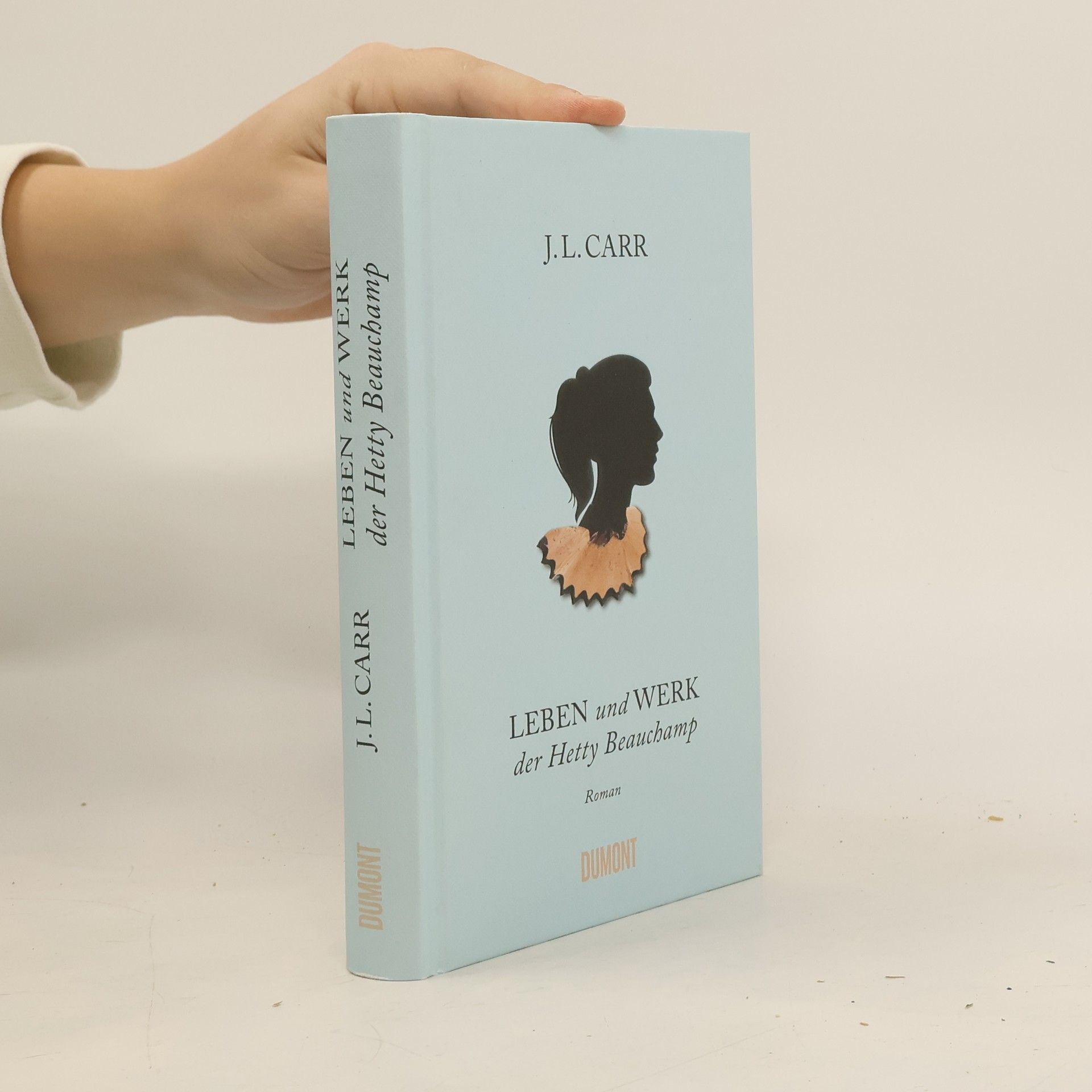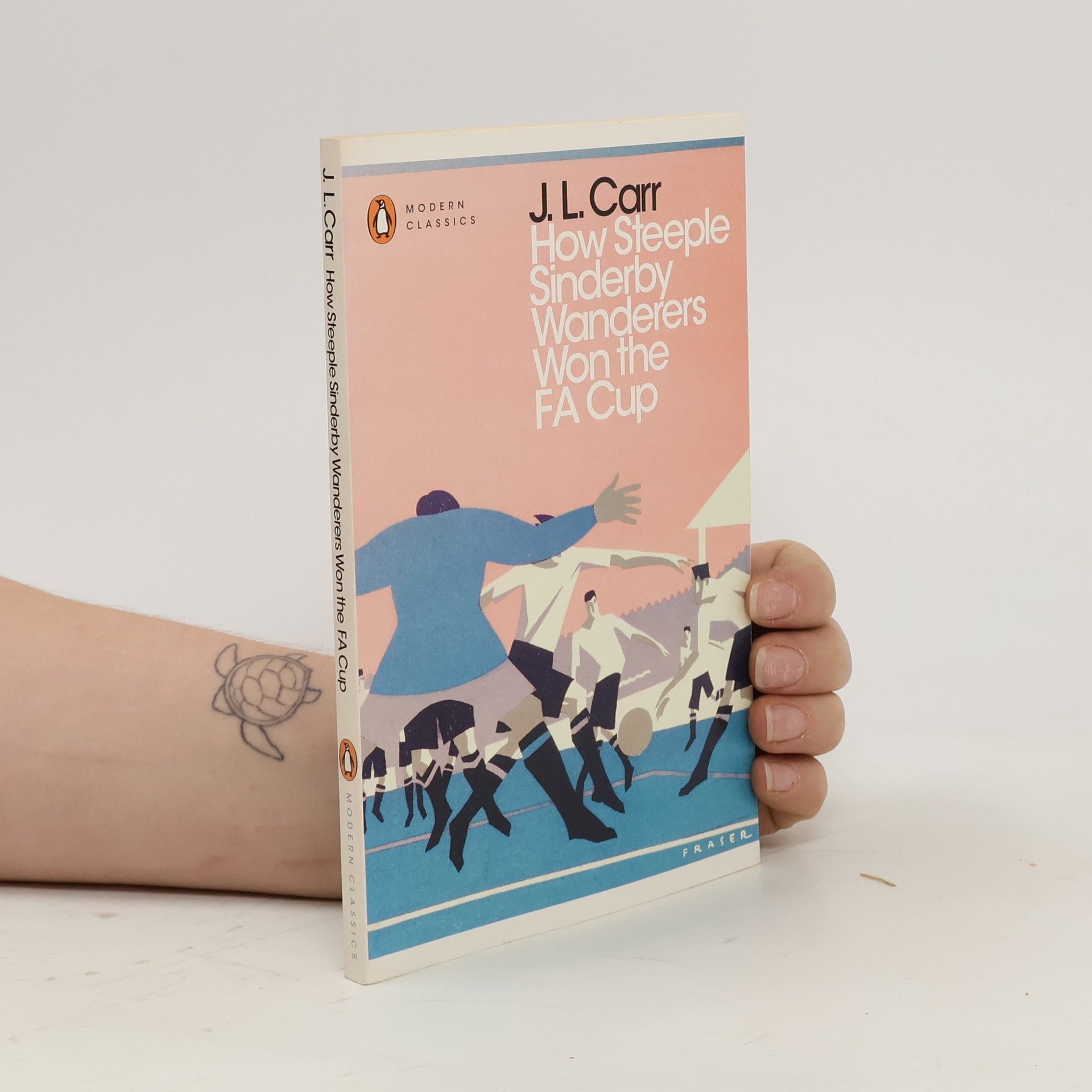Ostengland, Ende der 80er-Jahre: Die 18-jährige Hetty steht kurz vor dem Schulabschluss. Für die Zeit danach hat sie große Pläne: Sie will Literatur studieren, etwas aus ihrem Leben machen! In ihrem kleinbürgerlichen Elternhaus schlägt ihr wenig Verständnis entgegen – das gilt vor allem für ihren cholerischen Vater. Als sie erfährt, dass sie adoptiert worden ist, läuft Hetty davon. Ihr Weg führt sie nach Birmingham, wo sie ihre leiblichen Eltern finden will. Sie kommt in der Pension der exzentrischen Rose Gilpin-Jones unter. Die hilfsbereite Landlady unterstützt sie bei der Suche nach ihrer wahren Familie. Doch bald begreift Hetty: Es ist nicht wichtig, woher wir kommen, sondern wohin wir gehen wollen.
J. L. Carr Book order (chronological)






Die Lehren des Schuldirektors George Harpole
- 288 pages
- 11 hours of reading
George Harpole ist Mitte dreißig und arbeitet schon eine Weile an der St. Nicholas-Schule, als er auf den Direktorenposten befördert wird. Für ein halbes Jahr soll er die Geschicke der Lehranstalt leiten. Bald stellt er fest: Die eigentliche Herausforderung ist das, was außerhalb des Klassenzimmers passiert. Denn dort gilt es, sich durch ein kompliziertes Beziehungsgefüge zu hangeln. Auch die Zusammenarbeit mit den Kollegen erweist sich als schwieriger als gedacht. Ganz zu schweigen vom Umgang mit den Eltern. Zum Glück gibt es auch Lichtblicke: Die hübsche Mrs Foxberrow etwa, ihres Zeichens überzeugte Reformpädagogin. Und den ein oder anderen Schüler natürlich … ›Die Lehren des Schuldirektors George Harpole‹ ist in England ein Kultbuch. Aus Briefen, Tagebucheinträgen und Beobachtungen entsteht bei J. L. Carr ein äußerst unterhaltsamer Roman, der in Erinnerungen an die eigene Schulzeit schwelgen lässt – und zeigt, wie es ist, auf der anderen Seite zu stehen. »Eine Ansammlung von unvergesslichen Charakteren, die im Dickicht des britischen Schulsystems verborgen liegen … Absolut großartig!« The Times
Ein Tag im Sommer
Roman
Eines Morgengrauen erreicht ein Zug die Kleinstadt Great Minden, wo an ebendiesem Tag ein großer Jahrmarkt stattfindet. Aber der Kriegsveteran Peplow ist nicht gekommen, um mitzufeiern: Der Mann, dem er die Schuld am Tod seines Sohnes gibt, ist in der Stadt – und Peplow will Rache. In Great Minden trifft Peplow alte Bekannte und begegnet neuen Gesichtern. Auf seinem Weg durch die Stadt offenbart sich ihm das Bild eines vom Zweiten Weltkrieg gezeichneten Ortes. Die Bewohner von Great Minden leiden alle auf ihre Weise an der Welt. Und doch findet Peplow hier im Angesicht seiner persönlichen Katastrophe neue Hoffnung. In seinem Debütroman zeichnet J. L. Carr ein Porträt des ländlichen Großbritannien und richtet den Blick auf eine Gruppe von Menschen, die nach Erlösung suchen. Er lässt die Erzählbewegung zwischen den Figuren dieser Stadt pendeln und verdichtet die einzelnen Stränge zu einem berührenden Roman, der sich seinen feinen Humor bewahrt, auch wenn er von menschlichen Abgründen erzählt.
MODERN & CONTEMPORARY FICTION (POST C 1945). "But is this story believable? Ah, it all depends upon whether you want it to believe it." (J.L. Carr). Very strange and extremely funny, this uncategorizable novel is a surreal fantasy set, vaguely, in the early 1970s, during one highly memorable football season. Steeple Sinderby Wanderers, in their new all-buttercup-yellow stripe, start it by ravaging the Fenland League and end it with a phenomenal nail-biter against Glasgow Rangers. Told through unreliable recollection, florid local newspaper coverage and bizarre committee minutes, How Steeple Sinderby Wanderers Won the F.A. Cup is somehow both entertaining and very moving. There will never be players again like Alex Slingsby, Sid 'the Shooting Star' Swift and the immortal milkman-turned-goalkeeper Monkey Tonks.
A Month in the Country
- 112 pages
- 4 hours of reading
'Tender and elegant' Guardian 'Unlike anything else in modern English literature' D.J. Taylor, Spectator A damaged survivor of the First World War, Tom Birkin finds refuge in the quiet village church of Oxgodby where he is to spend the summer uncovering a huge medieval wall-painting. Immersed in the peace and beauty of the countryside and the unchanging rhythms of village life he experiences a sense of renewal and belief in the future. Now an old man, Birkin looks back on the idyllic summer of 1920, remembering a vanished place of blissful calm, untouched by change, a precious moment he has carried with him through the disappointments of the years. Adapted into a film starring Colin Firth, Natasha Richardson and Kenneth Branagh, A Month in the Country traces the slow revival of the primeval rhythms of life so cruelly disorientated by the Great War. With an introduction by Penelope Fitzgerald